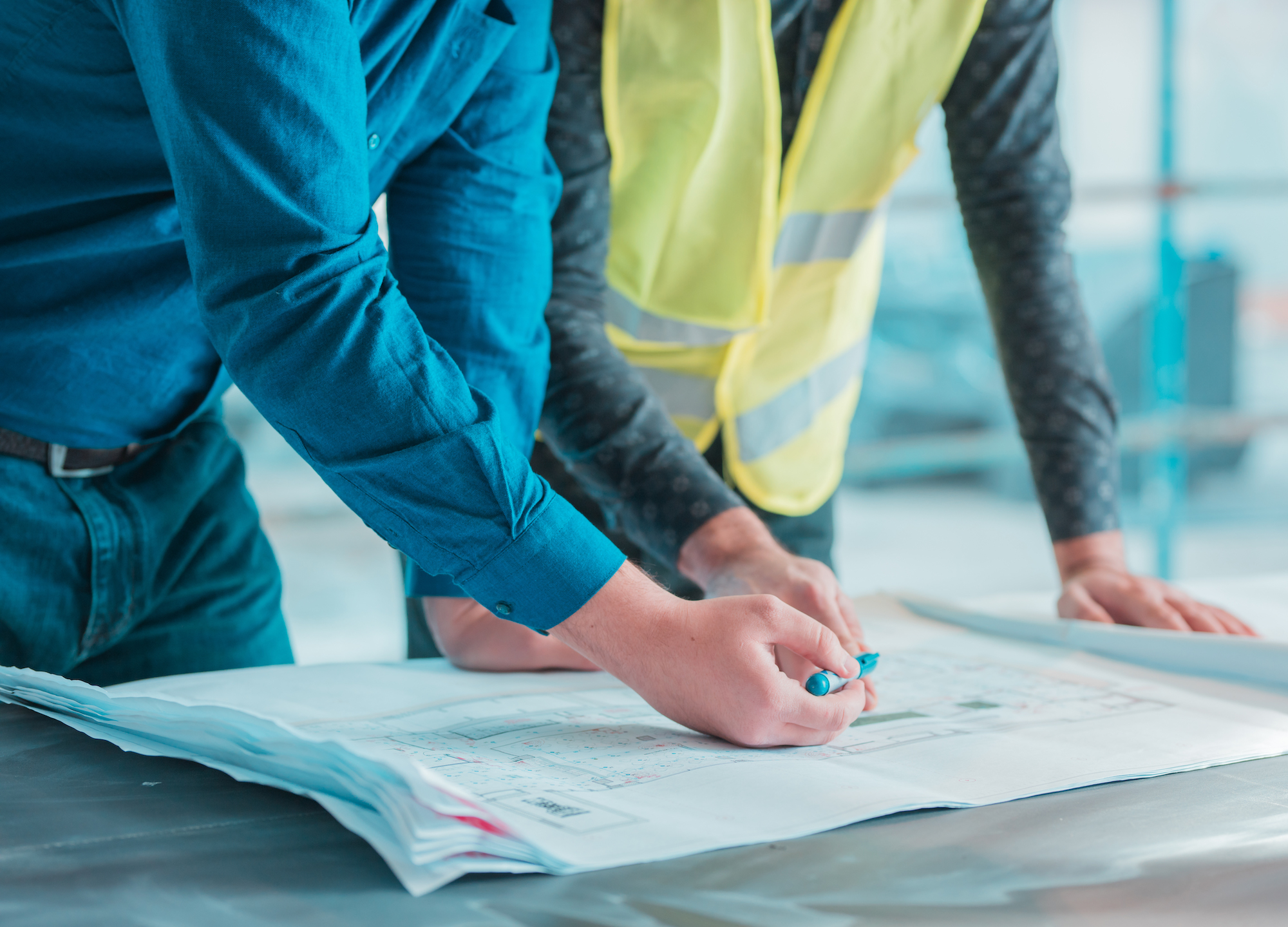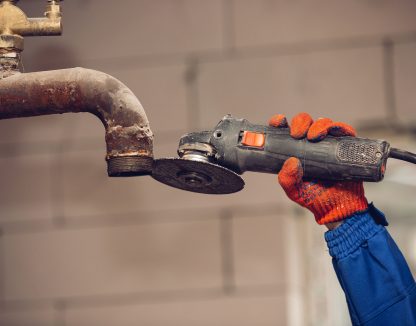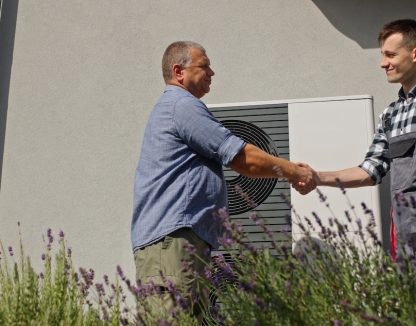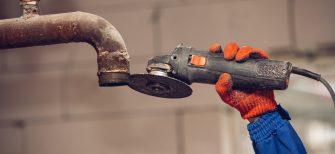Regular maintenance is essential for both residential and commercial HVAC systems to ensure optimal performance and longevity. However, commercial HVAC systems have unique requirements that set them apart from their residential counterparts. In this blog post, we will explore the factors that distinguish a commercial HVAC preventative maintenance plan. We will discuss service agreements, checklists, regular maintenance, and how they enhance the performance and reliability of commercial HVAC equipment. This includes air conditioners, heat pumps, and heat exchangers.
A commercial HVAC maintenance plan involves a comprehensive and proactive approach to managing and maintaining HVAC systems in commercial buildings. Unlike residential systems, commercial HVAC systems are larger, more complex, and designed to serve a higher number of occupants. Consequently, commercial HVAC maintenance contracts require different considerations and maintenance requirements.
Grow Your Business By Partnering With Payzer
Service Agreements and Maintenance Contracts
Service agreements or maintenance contracts, play a crucial role in commercial HVAC service plans. These agreements establish a contractual relationship between the business owner or facility manager and the HVAC contractor. They outline the scope of services to be provided, which includes routine maintenance visits, emergency repairs, response times, and associated costs. Service agreements ensure that both parties are clear on the expectations and responsibilities, providing a structured framework for ongoing maintenance services.
Maintenance Checklists and Routine Maintenance
Commercial HVAC maintenance agreements frequently include detailed maintenance checklists that clearly outline specific tasks to perform during each maintenance visit. These checklists ensure that all essential components of the HVAC system are inspected, cleaned, and calibrated regularly. Typical checklist items: check and clean air filters, check refrigerant levels, lubricate moving parts, inspect electrical connections, and test system controls.
Routine maintenance is vital for commercial HVAC systems as it helps identify potential issues before they escalate into major problems. Regular inspections and preventive maintenance contribute to the longevity of the equipment, minimize downtime, and improve energy efficiency. By addressing small issues promptly, costly repairs and system failures can be avoided.
Differences Between Commercial and Residential HVAC Maintenance
Several factors differentiate commercial HVAC maintenance plans from residential ones. Here are some notable differences:
System Size and Complexity
Commercial HVAC systems are significantly larger and more complex than residential systems. They often consist of multiple units, extensive ductwork, advanced control systems, and complex zoning configurations. Maintaining and servicing these complex systems require specialized knowledge and expertise possessed by commercial HVAC technicians. They are trained to handle the intricacies of commercial systems, ensuring proper functioning and addressing any potential issues effectively.
Usage and Occupancy
Commercial buildings usually have a higher occupancy rate compared to residential properties. This means that commercial HVAC systems need to handle a larger load and operate for longer hours. The increased usage puts additional strain on the equipment, necessitating more frequent maintenance visits and inspections. Commercial HVAC maintenance plans are made for commercial buildings to handle the load and maintain good performance.
Energy Consumption and Efficiency
Commercial buildings consume a substantial amount of energy, with HVAC systems typically accounting for a significant portion of that consumption. As energy costs continue to rise, optimizing energy efficiency has become a key focus for commercial HVAC maintenance plans. HVAC technicians do tasks like checking controls, improving airflow, and cleaning or replacing parts to make systems work better. Regular maintenance helps identify areas where energy consumption can be reduced, ultimately leading to cost savings for the building owner.
Planned Maintenance Phases
Commercial HVAC maintenance plans typically have four phases: inspection, planning, execution, and evaluation.
Inspection
HVAC technicians thoroughly examine the system, identifying potential issues and gathering the necessary information. They inspect various components such as the compressor, condenser, evaporator coil, air ducts, and thermostat to ensure they are functioning correctly.
Planning
Based on the inspection findings, a maintenance plan is developed. This includes tasks, timelines, and required resources. The plan includes regular maintenance visits, fixing problems, and taking preventive measures to keep the commercial HVAC system working well.
Execution
During the execution phase, the maintenance tasks outlined in the plan are carried out. This includes three tasks: checking the system’s performance after maintenance, identifying parts that require additional attention, and recommending future maintenance visits. The HVAC technician ensures that all components are in proper working condition and that the system operates efficiently.
Evaluation
The effectiveness of the maintenance activities is evaluated. This involves assessing the system’s performance after maintenance, identifying any areas that may require additional attention, and making recommendations for future maintenance visits. Regular evaluation helps refine the maintenance plan and ensures continuous improvement in the performance and longevity of the commercial HVAC system.
Commercial HVAC maintenance plans differ from residential plans due to several factors. Firstly, commercial systems are larger and more intricate.
Additionally, people use them more frequently and they can accommodate a greater number of individuals. Moreover, commercial plans prioritize energy conservation. Lastly, scheduled maintenance is a crucial aspect of commercial HVAC maintenance plans.
Frequently Asked Questions
What should be included in an HVAC maintenance contract?
An HVAC maintenance contract should include the scope of services, such as routine maintenance visits, emergency repairs, and response times. It should outline the responsibilities of both the HVAC contractor and the building owner or facility manager. The contract should also have information about costs, payment terms, and any specific terms and conditions for maintenance services.
How do you maintain commercial HVAC?
Maintaining commercial HVAC systems involves several key practices that include:
Regular inspections: HVAC technicians should conduct routine inspections to identify potential issues and ensure that all components are functioning properly.
Cleaning and replacing filters: Air filters should be cleaned or replaced regularly to maintain proper airflow and indoor air quality.
Checking refrigerant levels and pressures: Proper refrigerant levels and pressures are crucial for efficient cooling and heating operations.
Lubricating moving parts: Lubrication prevents excessive friction and wear on moving parts, ensuring smooth and efficient system performance.
Inspecting electrical connections: Loose or damaged electrical connections can cause system malfunctions and safety hazards. Regular inspections help identify and address any electrical issues.
Calibrating controls: Accurate calibration of controls, such as thermostats and sensors, ensures precise temperature control and energy efficiency.
Conducting performance tests: Performance tests measure the system’s overall efficiency and identify any areas that may require adjustment or repair.
What are the four phases of planned maintenance for HVAC?
The four phases of planned maintenance for HVAC systems are:
Inspection: Thoroughly examine the HVAC system, identify potential issues, and gather necessary information.
Planning: Develop a maintenance plan based on the inspection findings. This includes tasks, timelines, and required resources.
Execution: Carry out the maintenance tasks outlined in the plan, such as cleaning, replacing parts, calibrating controls, and conducting tests.
Evaluation: Assess the effectiveness of the maintenance activities, identify areas for improvement, and make recommendations for future maintenance visits.
What is the ideal maintenance schedule for HVAC?
The ideal maintenance schedule for HVAC systems varies depending on factors such as system type, usage, and manufacturer recommendations. It is suggested to have maintenance visits twice a year. These visits should ideally take place in spring and fall. This is done before the busiest times for cooling and heating.
Regular maintenance ensures optimal system performance, maximizes energy efficiency, and extends the equipment’s lifespan.







